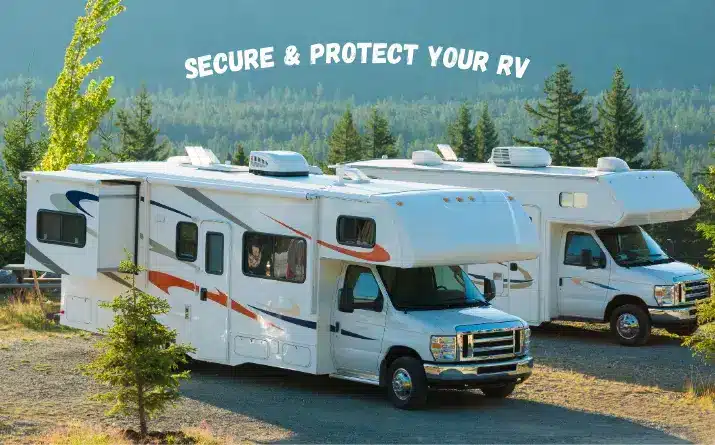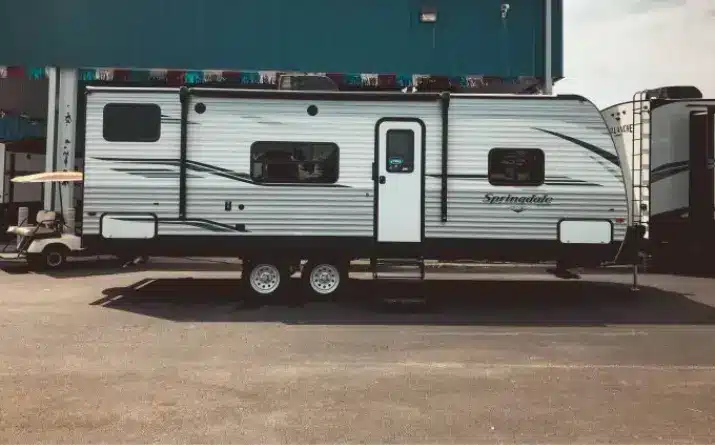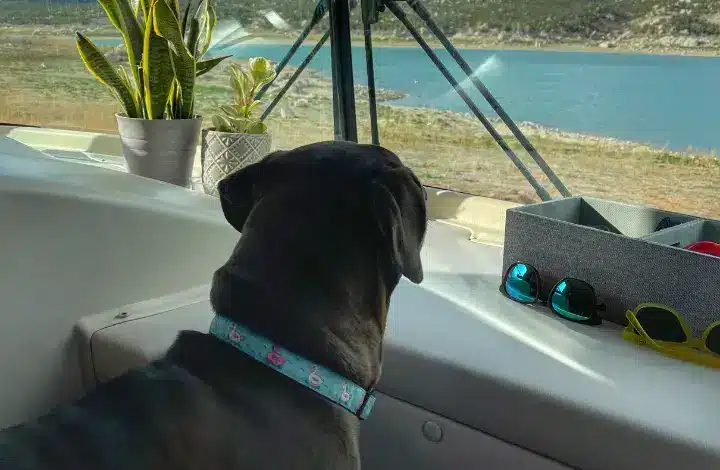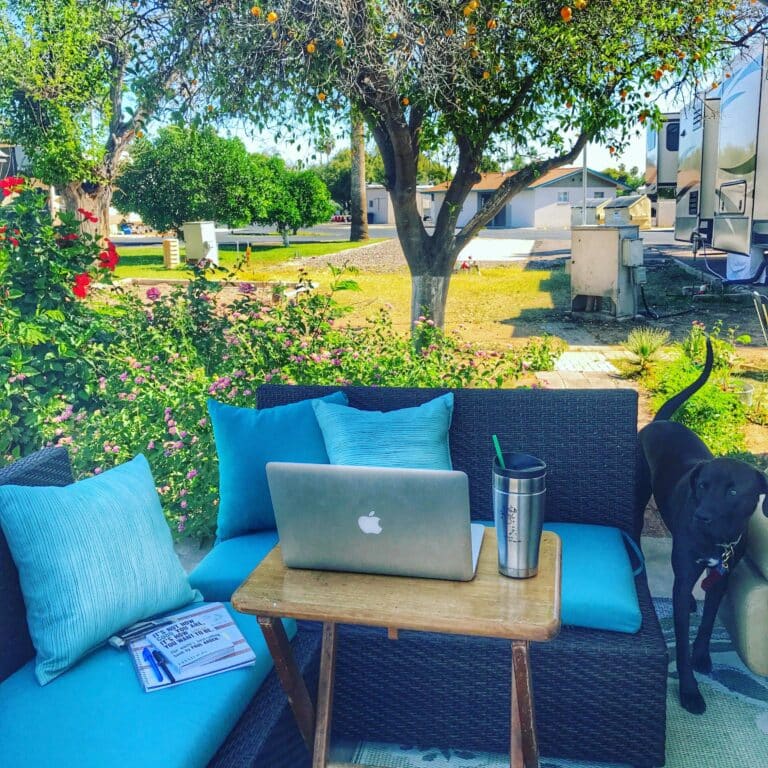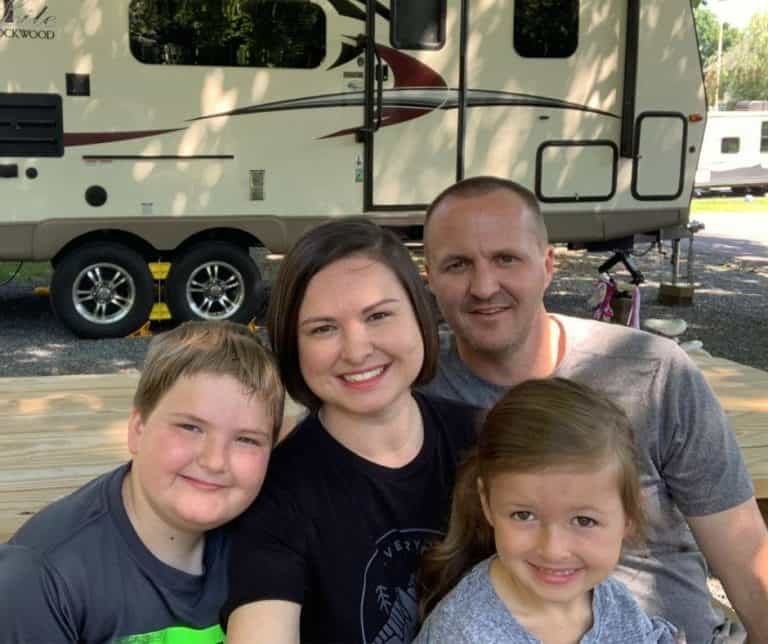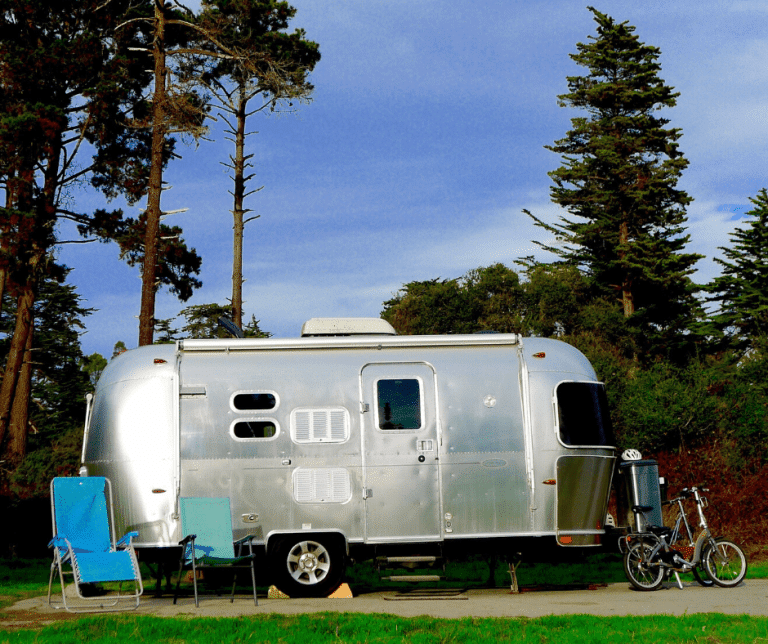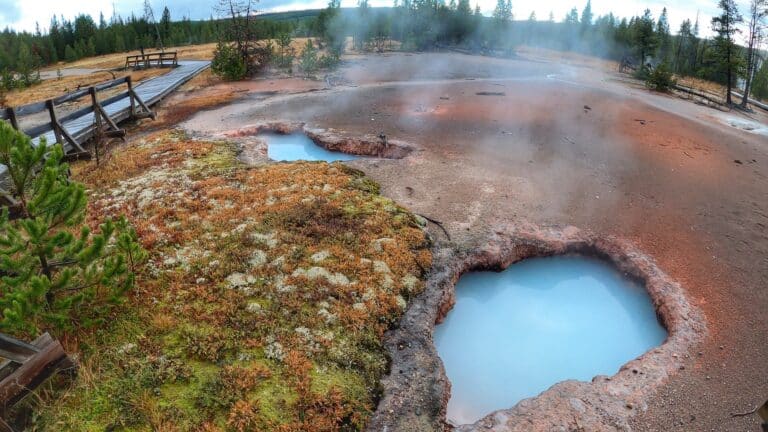Secure Your RV: Theft Prevention and Personal Safety
When I first started RVing, I was a solo full-timer. As a female, I received a dozen crazy RV tips for safety on the road. One tip I often heard was to leave a pair of men’s boots outside my door so people didn’t think I was alone. Perhaps I was naive, but at the time I never worried about how to protect my RV. Preventing theft and personal safety was not a priority over planning and enjoying outdoor adventures.
Today, I RV with my husband in our Class A motorhome. In total, I have been living on the road for over 8 years.
Theft Does Happen
Personal experience doesn’t allow me to remain as naive as I was in the beginning. Bikes and skateboards have disappeared. A Yeti cooler was stolen right off my patio.
Overall, I still believe that the RV community is incredibly friendly, supportive, and helpful. I have met some of the kindest, most generous humans on the road.
Ask Yourself: How Should I Protect My RV
Simple Precautions to Deter Theft
But, it is always a good idea to take some simple precautions to protect yourself while RVing. Just as you would lock your car doors at the grocery store, do what you can to protect your belongings on road trips.
The type of RV camping you do will significantly influence the theft prevention you need to consider and your safety concerns. Thus, I’ve broken this article into two sections: RV park camping and boondocking.
Take a few preventative steps to secure your belongings as well as some advanced planning for your personal safety to ensure you can enjoy RV travels without worry.
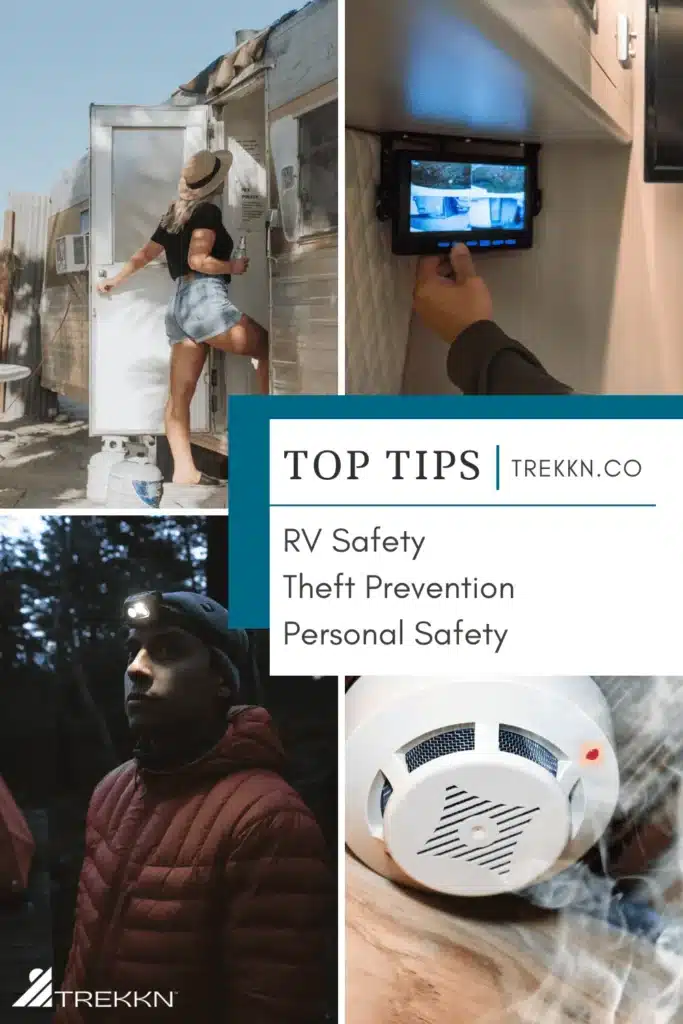
Disclaimer: TREKKN is ready-supported. We may earn a small commission for qualifying purchases, at no additional cost to you. Please read our disclosure for more information.
Safety Precautions at RV Parks
You are likely to be closer to a downtown or city center when camping at RV parks. As a result, more people will be in and around the area. This means the risk of crime is higher compared to other camping locations.
Know that if you leave a shiny new bicycle sitting outside your RV without a lock, someone passing by could easily hop on, then ride off without even looking back. Sadly, I’m speaking from experience.
Choose RV Parks Wisely
One simple way to help deter theft from happening is to stay at RV parks that offer overnight security or have a gated entrance. Before booking, read reviews from other travelers to confirm if the RV park’s security efforts match up with what they say on their website.
Do Not Leave Valuables in Plain Sight
Whenever we leave the RV unattended, whether in a parking lot, or at an RV park, we put valuables out of sight. It’s such a simple thing to do and should help prevent crimes of opportunity.
Complacency is a sure fire way to become a bigger target for theft. Always remind yourself that protecting yourself and your RV is the priority.
If you leave a computer sitting on the dining table with the kitchen window cracked, it’s basically an invitation to passersby to consider reaching in and helping themself to a new computer. We like to keep our window shades closed to prevent people from seeing into our RV.
Personal Safety while Boondocking
Whether camping in a National Forest or on BLM land in the desert, boondocking presents some different safety considerations.
The biggest difference from RV parks is that boondocking areas are typically in a remote area far from the nearest town. For us, we like to be self-sufficient. As they say, “self-rescue is the best rescue.” We try to be prepared in case something should happen to either of us, or to our RV while we’re boondocking.
Spare Parks and Emergency Kits
Part of this preparation means traveling with spare parts in case something breaks. We never want to be stranded somewhere without a cell signal, unable to call for help.
But many boondocking locations are outside of cell reception range, so we try to keep as many parts and tools on hand as possible, to solve whatever issues might arise.
We also like to keep an emergency kit in the RV for our personal safety. See the section below on what to put in your emergency RV kit.
First, let’s review some specific tools for theft prevention and personal safety.
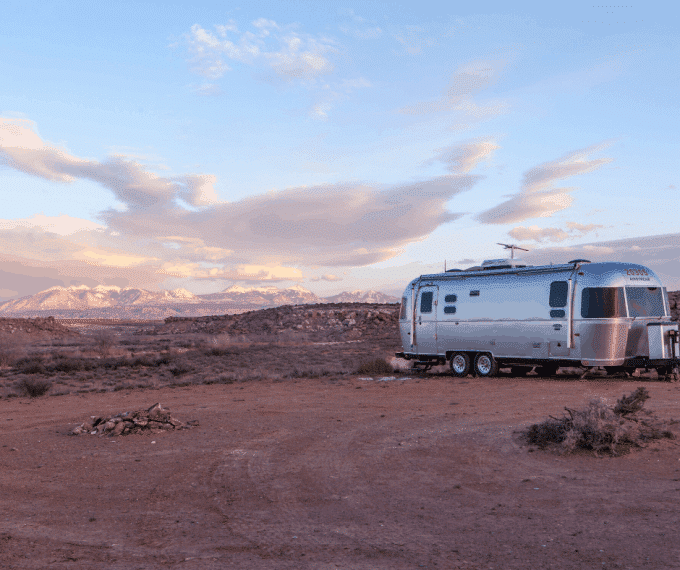
Tools and Supplies to Help Prevent Theft
Kryptonite Bike Lock
These rugged locks come with a guarantee that your bike won’t be stolen. Their locks cannot be cut with standard wire cutters. If your bike gets stolen with their lock on it, they give you cash toward replacing your bike.
In addition to the durability, ease of use, and efficacy of deterring theft, we think the guarantee makes these locks worth the price tag.
Bicycle Cover
We use a bicycle cover, which (we hope) deters thieves. Sometimes simple measures are very effective. We figure if you can’t see what’s under the cover, you won’t bother trying to steal it.
For one thing, the cover is kind of a pain in the butt to remove. It’s enough trouble that it’s more likely thieves will decide to pursue an easier target. Said differently, the process of removing the bicycle cover can attract attention. That, in and of itself, helps to deter criminal activity.
If you want to take it another step further, securely attach to the cover a bear bell or other simple noise mechanism. Look for a bell with a silencer such as a magnet enclosure. That way you can silence the bell when you’re rolling through the quiet campgrounds. Release the magnet if you’ll be away from the rig. It’s just one more simple measure of preventing theft.
RV Locks
STORAGE BAY LOCKS
Most RVers know that storage bay locks are fairly standard across RV models and brands. A person can purchase replacement keys for many of these standard locks. Continuing to use the standard locks is almost an invitation for bad characters to reduce your RV’s cargo weight.
If you’re going to store valuables in your outside storage bays, we recommend upgrading to a more secure lock.
ENTRY DOOR LOCKS
The next lock to consider is your entry door. We have a dual-locking, high quality lock on our RV door, which is common on motorhomes.
If you have a travel trailer or fifth wheel, you may want to upgrade your main door lock if you don’t like the quality of the one it came with.
Upgrade the lock on travel trailers or fifth wheels.
PROPANE TANKS
Another important, well essential item on your RV is the propane tank. Discourage anyone from running off with your tanks with a simple propane tank locking kit. Double check you order the correct size to fit your gear.
Considerations for Personal Safety
Research and Plan Your Route in Advance
Share your route with someone close to you. Promise to check in at certain intervals. There’s some safety in knowing that someone knows your whereabouts. Agree to a plan of action if you do not check in at the designated time.
In addition, always know where the closest hospital is located where you’re camping. Know the emergency numbers of the areas you’re transiting through or staying in. The same goes for maintaining a list of local contact numbers for veterinarians, if you have pets.
Pet Protection
If you have pets that stay inside your RV while you’re away from it, it is advisable to leave a note posted on your door or window that states that pets are inside. Include your phone number on the note so staff or guests can call you in the event of an emergency.
When I lived at an RV park in Phoenix, during the summer months the park would sometimes lose power. Having the AC turned off for any length of time was a threat to my dog who was sometimes home alone.
If I was leaving for more than an hour, I would usually tell a neighboring camper that my dog was in the RV.
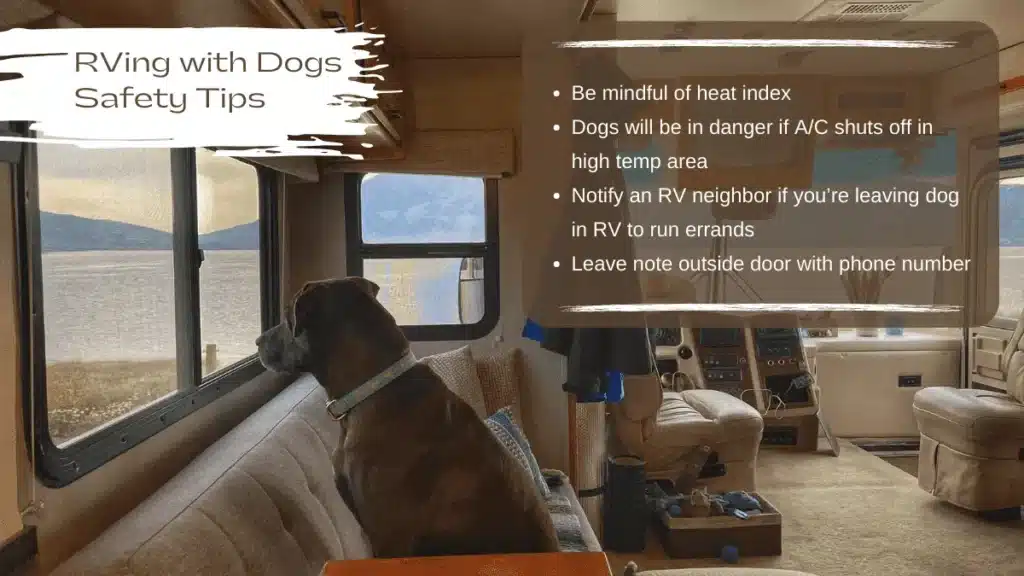
Local Awareness
Be aware of the area where you are camping in. Ask the RV park staff or locals if there are any local threats to be aware of.
If, for example, you’re camping in Lake Tahoe, you should be aware there are bears in that area.
If you’re camping in dry regions that are prone to wildfires, you should know where to get updates about active fires. And, you should prepare your evacuation plan and route in advance for settling in for a long stay.
Travel Together
There’s safety in numbers. When you caravan with other RVers, the likelihood of theft decreases. In general, thieves do not like to attract attention or be noticed. With that in mind, they are much less likely to approach a group.
That said, the opposite tends to be true when groups leave themselves vulnerable. It’s fairly easy to slide through a door that was left wide open to allow fresh air into the RV. It’s even easier when the owners of that RV are distracted and enjoying themself with friends at a separate campsite nearby.
Safety in numbers should not equate to letting your guard down completely.
Online Awareness
Be cautious about sharing your location and upcoming travel plans on social media. This is especially important for content creators.
You do not want someone you don’t know or trust to be aware of when you will be out of town for an extended period of time.
We have a YouTube channel and post about our RV travels on social media. Because of this, we’re always posting about the past. We never post about a location until we have already moved on to the next.
Vehicle Maintenance
This may seem obvious, but keep up with your vehicle maintenance. Regular service and pre-trip safety inspections will prevent problems while going down the road.
A well-maintained vehicle is less likely to give you trouble on long drives. This is especially important if you’re planning to travel through remote areas where being stranded on the side of the road would leave you vulnerable.
Roadside Assistance
Be sure to carry a roadside assistance policy that covers you where you are traveling. Keep their numbers readily available. A good tip is to save certain contacts in your phone with the prefix “roadside” so it’s easy to find with the search function.
You only need to search for the prefix rather than try to remember the contact name during a time that may be stressful. Now if you simply call Geico or Good Sam, then it’s simple.
But, if you’re someone who returns to specific locations, and learns (from your RV community or personal experience) about good resources, then it’s helpful to have these contacts noted by location.
For example: you can save a mobile tire repair company in your phone under “Roadside – Tires – Austin – [Name]”. That gives you 3 easy terms to search. That’s much easier than trying to remember the name of someone you may have only called once (or never before).
HARD COPY LIST OF ALL EMERGENCY CONTACT NUMBERS
Another good tip is to have a hard copy of all your emergency contact numbers, including your family and friends. Because as we all know, the only one who remembers all those phone numbers is our phone. So keep a paper list in an easy to access, secure location just in case something happens with your electronic device.
So just in case you do experience trouble on the road, you have a plan to get help as quickly as possible.
Fire Safety
Your RV should come equipped with fire extinguishers but those factory units may not be enough to protect you and your family. There are many different products on the market today for fire safety in an RV. Only you will know what your specific RV needs.
FIRE EXTINGUISHERS
I recommend, at the very least, you keep a small, easy-to-use fire extinguisher spray in or near the kitchen.
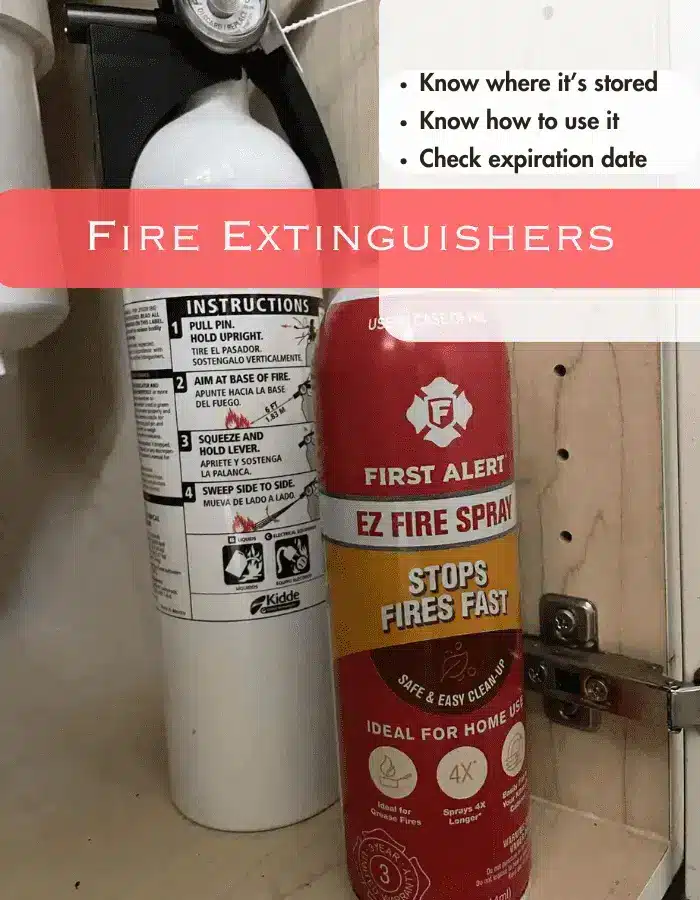
SMOKE DETECTORS
Be sure to regularly test your smoke detectors to ensure they’re working properly. Remember to replace the batteries, as needed, according to the manufacturer’s recommendation.
RV Emergency Kit
Essential Items for Your RV Emergency Kit
Store the kit in an area that is easy to access in any situation. You will not want to spend time unpacking your entire storage bay searching for emergency gear or supplies if you’re stuck on the side of a busy freeway after dark.
These are the essential items to keep your RV emergency kit.
Security Camera System
Finally, I believe installing a security camera on an RV can provide an extra layer of protection whenever we’re camping. Before we installed the system, I never thought we needed security cameras, but now that we have them, I’d never go back.
You can set the security settings to alert you when there is motion outside your RV during zero activity hours. That helps you know if someone is lingering outside your RV at night.
Depending on your wireless connection, you will also be able to monitor any activity while you’re fishing, hiking, or otherwise away from your rig.
RV Security Camera
Install an RV security camera to both help prevent theft protection and also to enhance personal safety.
RECORDING OF EVENTS
In addition to theft prevention, having a recording can help in other ways. One of our friends was bit by a dog at a campground. His RV security camera caught it on tape. A security camera can be helpful for your personal safety as well as for theft.
Trust Your Own Instincts
My last piece of advice is to trust your gut. If an area feels unsafe, move on. No RV park or boondocking location is worth feeling unsafe. You will end up spending quality time worrying instead of enjoying the campsite.
We always feel it’s better to move on to Plan B or Plan C if something doesn’t feel right. Take the time you need to find the right spot. Ensure your safety is a priority.
At that point, it’s very easy to relax and be content with your accommodations.
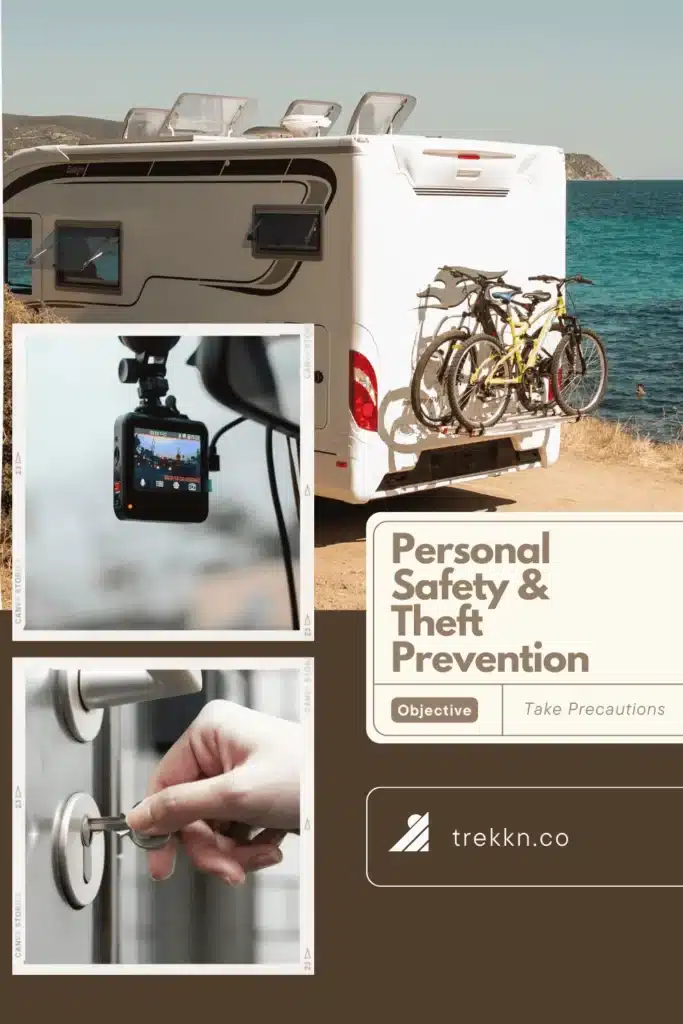
Safe travels, friends!
Related Reading
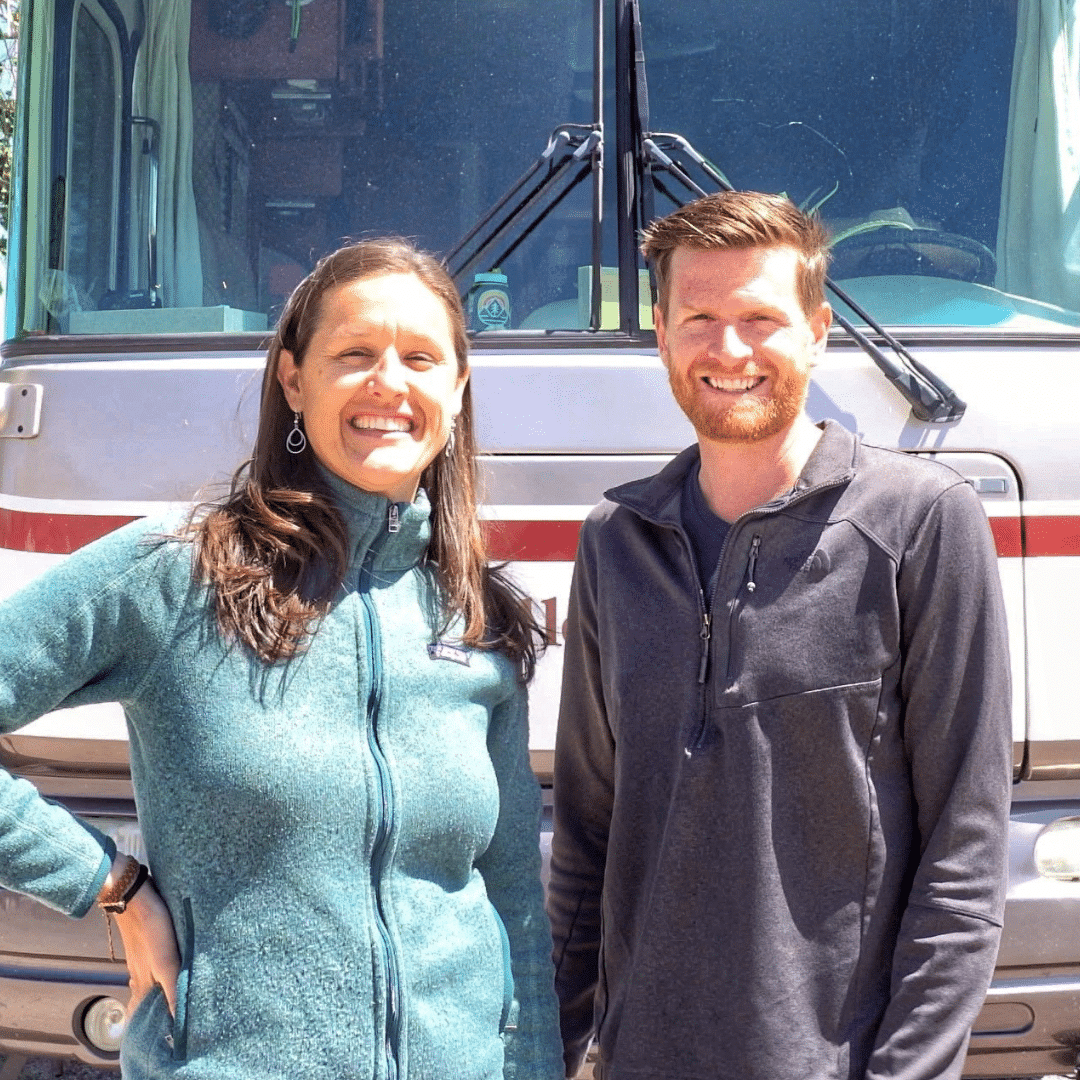
Kristen Bates lives & works from her RV, primarily boondocking off-grid. She owns and operates a women-led travel company, Legit Trips. Kristen loves to explore new places and inspire others to do the same. If she’s not typing away on her laptop, she’s off on an adventure- hiking, biking, or SUP boarding. You can follow her RV adventures @PerpetualMoves and learn more about her travel company at LegitTrips.com.


